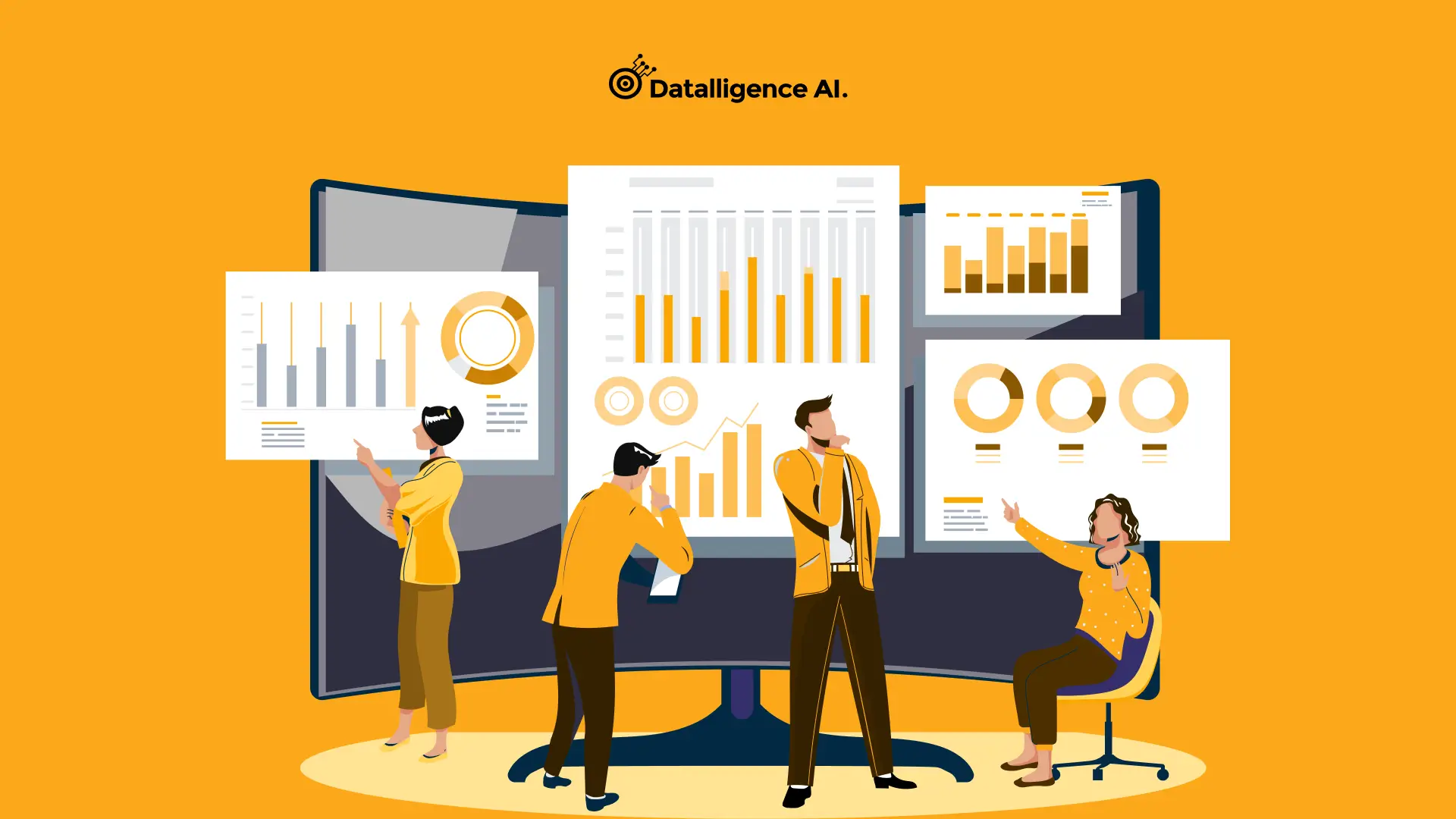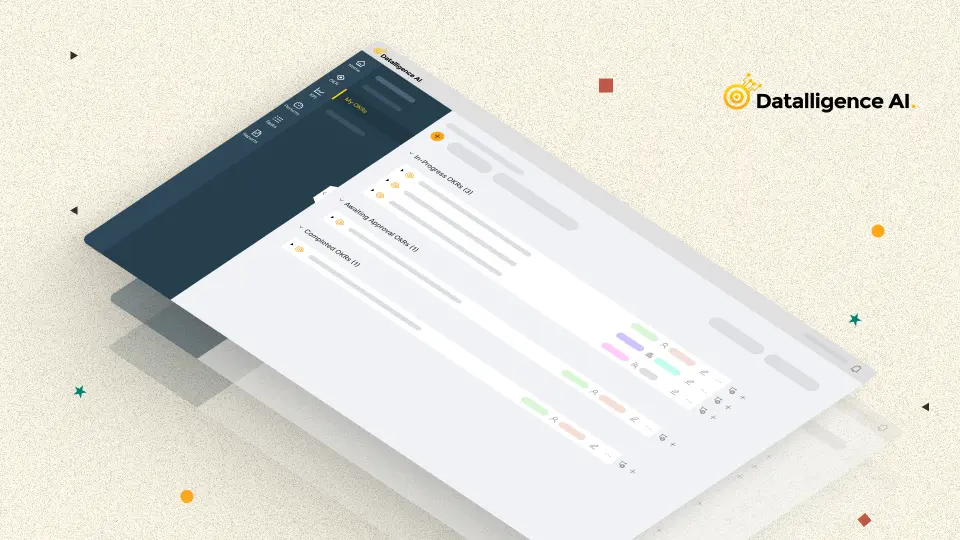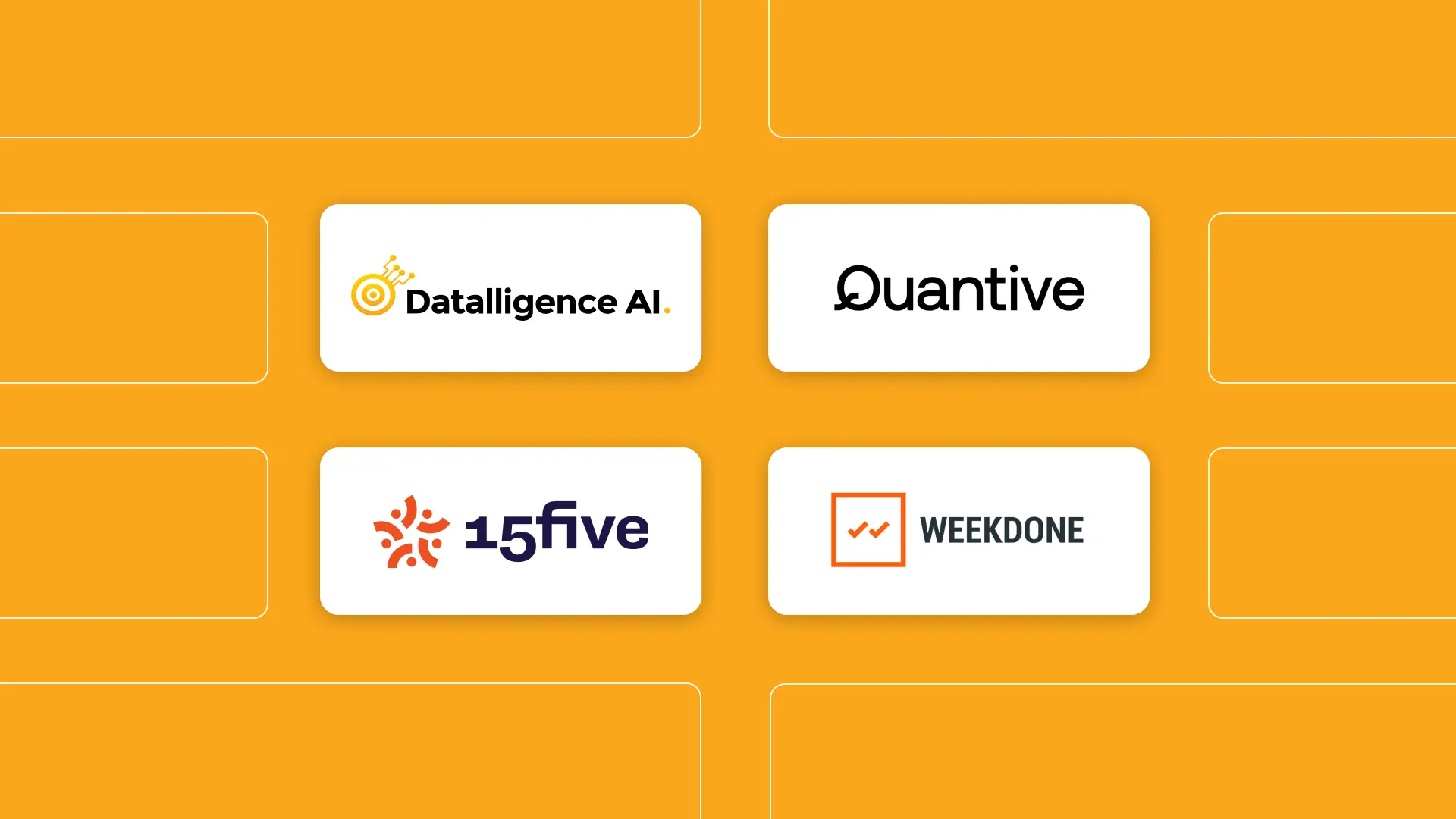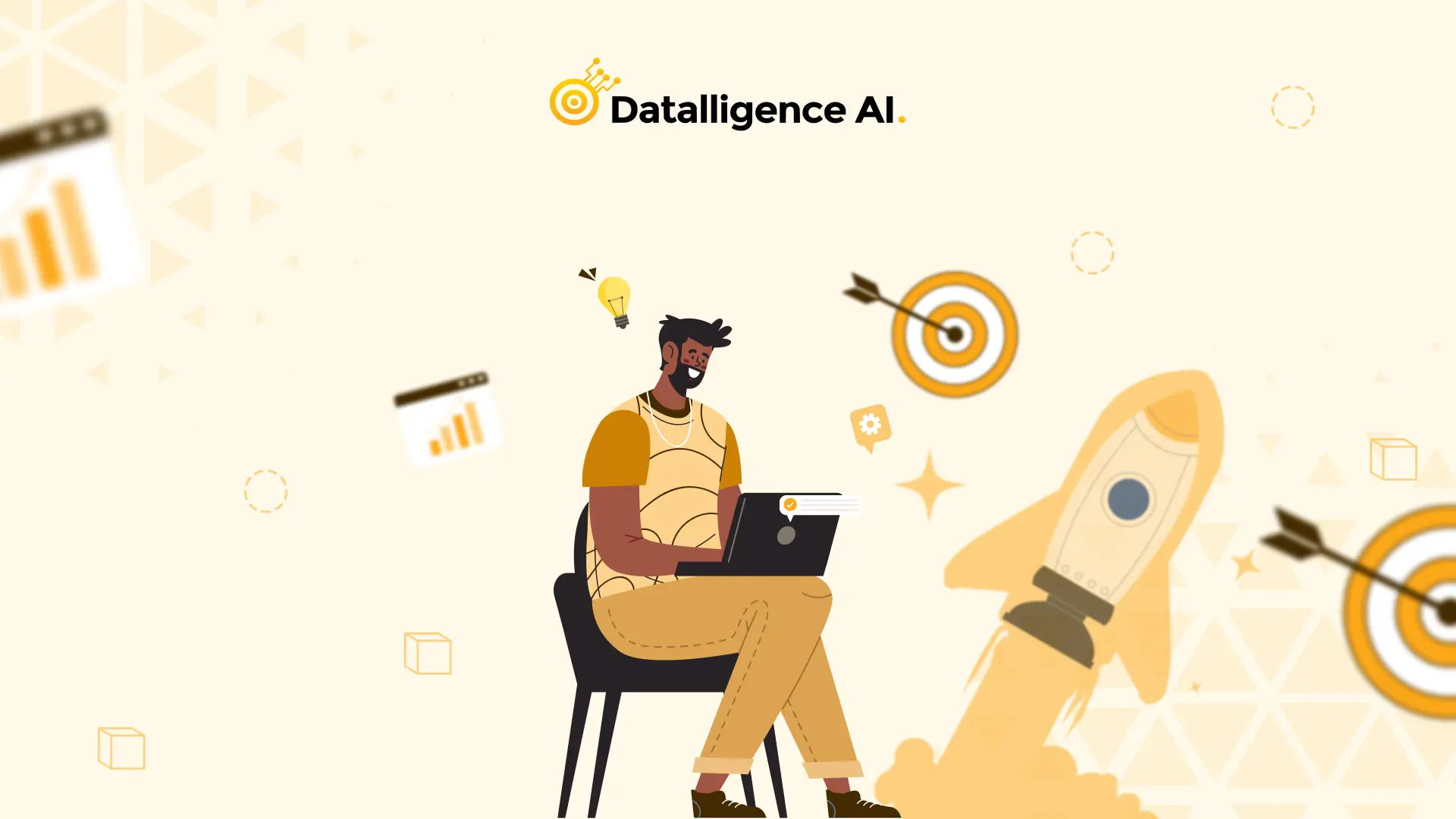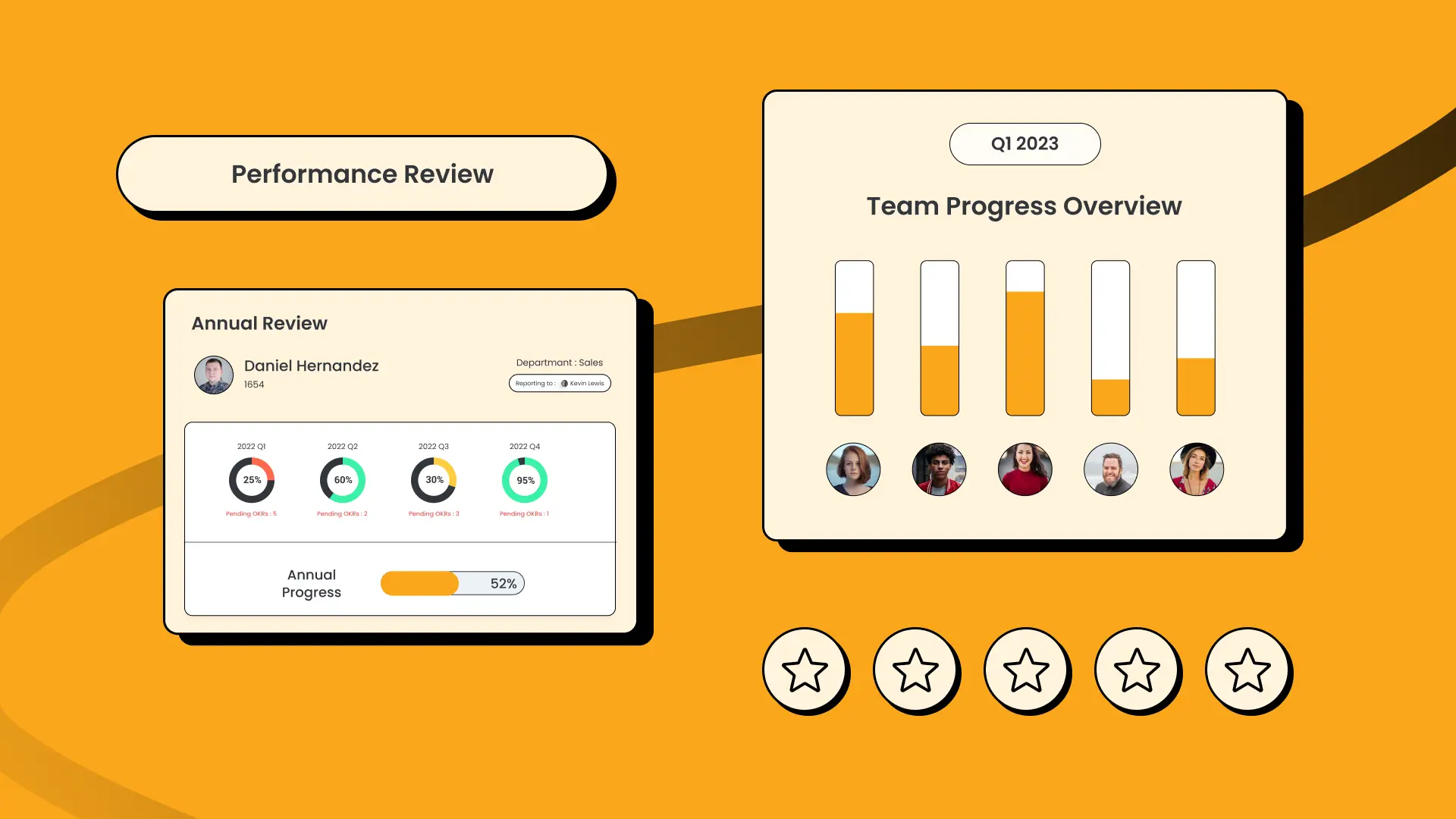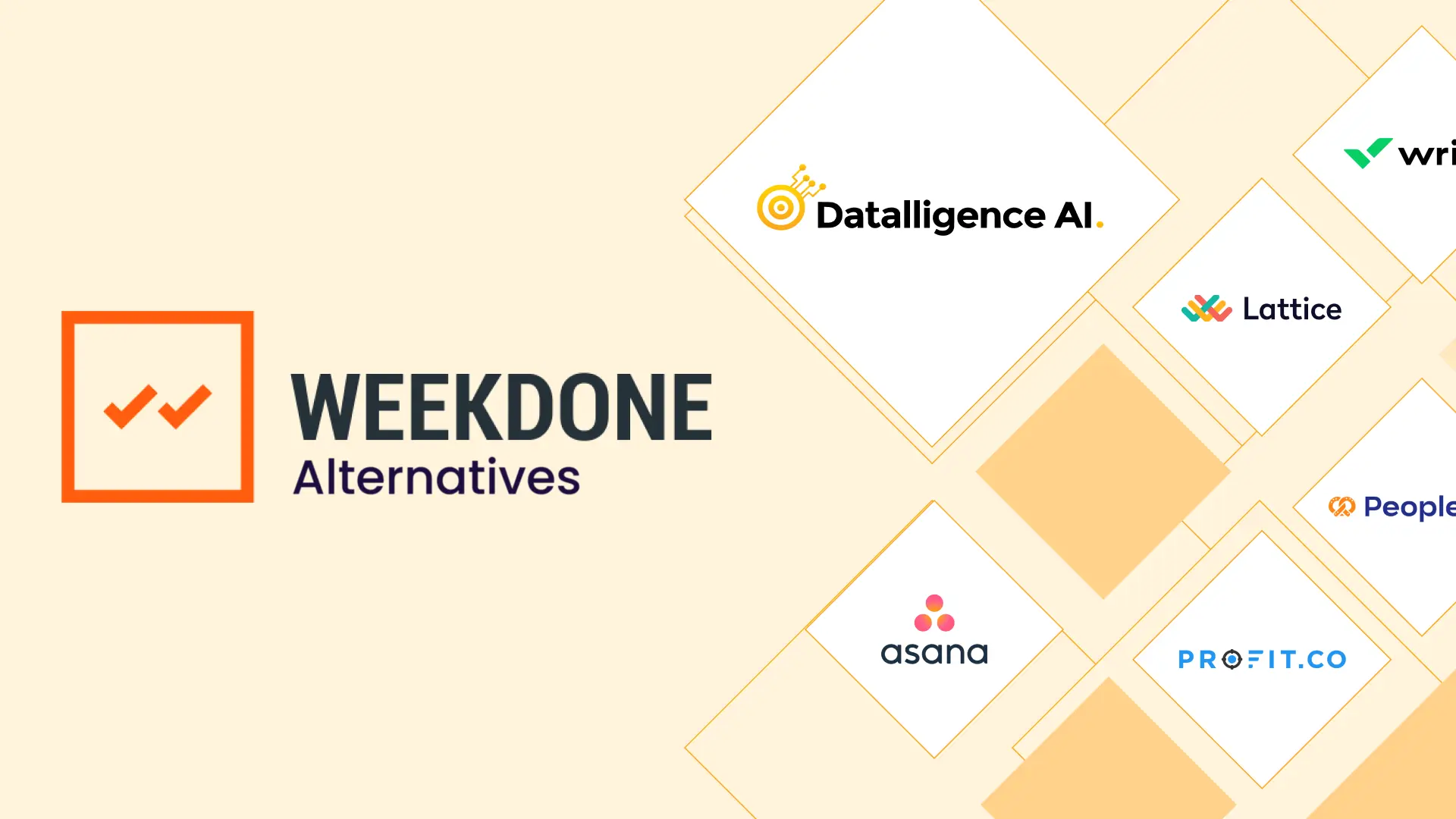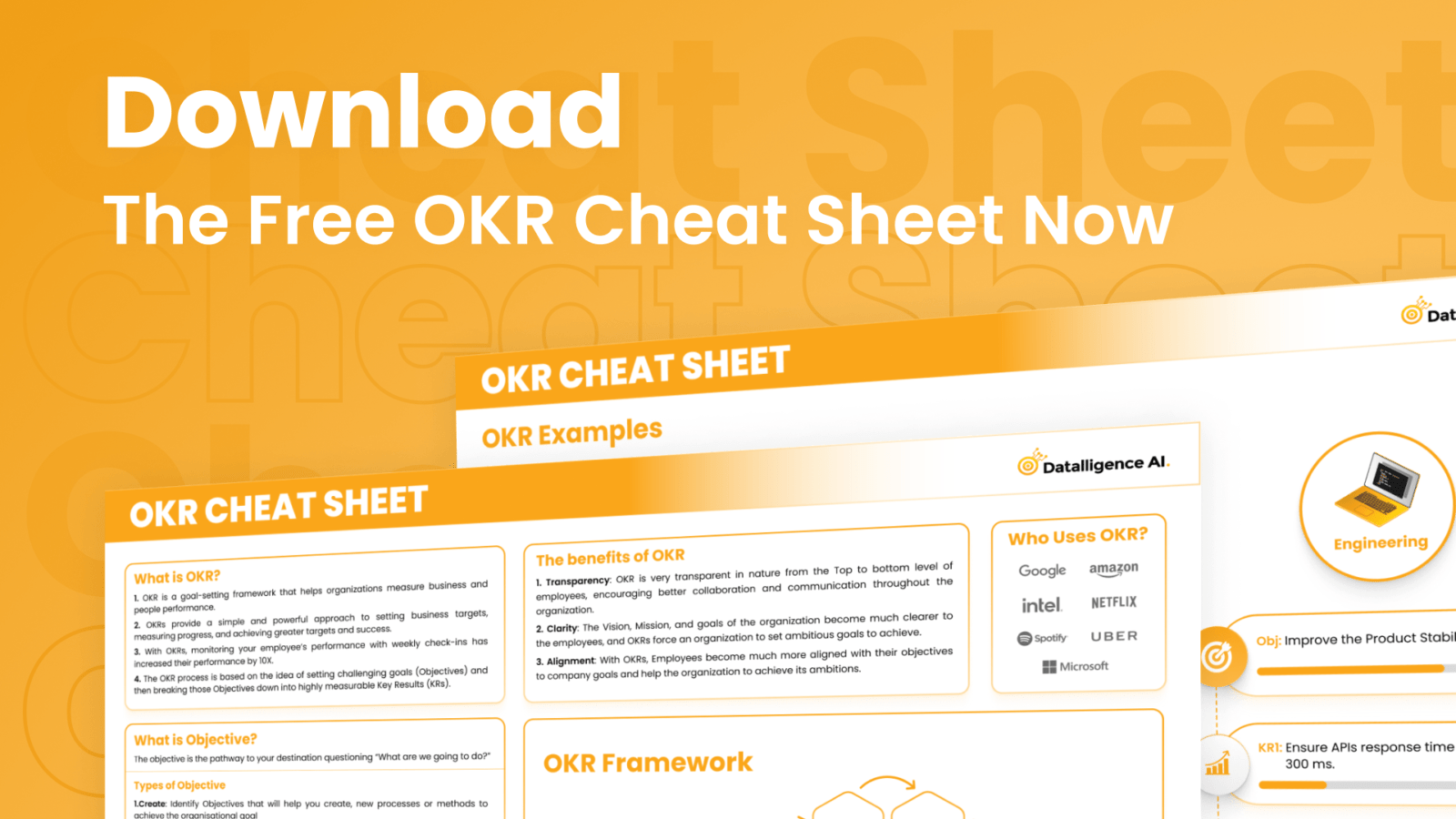Did you know? 94% of employees say they would stay at a company longer if it invested in their career development.
In today’s dynamic business environment, managing talent effectively is no longer a luxury but a necessity. A Talent Management System emerges as a game-changing solution for organizations looking to optimize their workforce strategies. By integrating advanced technology with innovative methodologies, a Talent Management System enables businesses to align talent development with organizational goals, fostering growth and efficiency.
Lets explores how a Talent Management System works, its methodologies, and its critical role in addressing contemporary challenges, especially for small businesses seeking efficient performance management systems.
What is a Talent Management System?
A Talent Management System is a comprehensive platform that facilitates the management of the employee lifecycle, encompassing recruitment, performance management, learning and development, and succession planning.
For example, Google effectively uses advanced talent management tools to support its workforce strategies. With a strong focus on employee development, Google integrates performance data with AI-powered insights to identify high-potential employees, personalize learning paths, and enhance employee engagement. Their approach to continuous feedback and data-driven decision-making has helped maintain a culture of innovation and high performance, even as the company scales globally.
With modern advancements, the Talent Management System reimagines traditional approaches. It leverages technologies like AI, analytics, and automation to create intelligent, agile, and user-friendly systems that enhance decision-making, employee engagement, and organizational performance.
Why a Talent Management System Is Vital in Today’s Context
The workplace has experienced a profound transformation in recent years, driven by the rise of remote work, hybrid models, and the integration of AI into daily operations. These changes, coupled with a growing focus on employee well-being, have redefined organizational priorities. A Talent Management System has evolved to meet these needs by:
Leveraging AI for Data-Driven Talent Decisions
- Delivers actionable insights using AI-powered analytics and real-time dashboards.
- Identifies patterns in performance, attrition, and engagement to enable predictive and proactive talent management.
- Helps businesses optimize their hybrid workforce strategies by analyzing productivity trends and identifying skills gaps.
Embracing Employee-Centric Approaches in a Hybrid World
- Personalizes career development with AI-tailored learning pathways that adapt to each employee’s aspirations and current capabilities.
- Facilitates real-time feedback and communication, crucial for maintaining trust and transparency in distributed teams.
- Supports diverse working styles by aligning individual goals with the organization’s vision, whether employees are remote or onsite.
Streamlining Operations with AI-Driven Automation
- Integrates talent management and performance tracking to create unified workflows that reduce inefficiencies.
- Automates routine HR tasks, such as compliance checks, performance reviews, and documentation, freeing HR teams to focus on strategic priorities.
- Ensures seamless alignment of hybrid teams through centralized dashboards that track goals, performance, and engagement.
Fostering Continuous Improvement Through Real-Time Insights
- Shifts away from traditional annual reviews, replacing them with ongoing AI-driven goal alignment and progress tracking.
- Encourages agility by providing instant feedback loops and adjustment mechanisms for both employees and managers.
- Enhances decision-making by delivering predictive insights, helping organizations stay adaptive in a fast-changing environment.
By integrating AI and embracing the hybrid work culture, a Talent Management System becomes a powerful tool for navigating today’s complex workforce landscape, ensuring organizations remain competitive, adaptive, and people-focused.
Core Methodologies of a Talent Management System
Agile Performance Management
Replaces traditional review cycles with a continuous feedback model:
- Aligns individual objectives with broader organizational goals.
- Uses OKRs (Objectives and Key Results) for precise goal tracking and accountability.
Personalized Learning and Development
Provides dynamic and adaptable training programs:
- Includes e-learning, on-demand content, and gamification for engaging experiences.
- Tracks individual progress, ensuring upskilling opportunities are relevant and timely.
Employee Engagement and Retention
Incorporates tools that measure employee sentiment in real-time:
- Pulse surveys and engagement analytics highlight areas of improvement.
- Actionable insights reduce turnover and improve satisfaction.
Succession Planning and Talent Pipelines
Proactively manages leadership development:
- Identifies high-potential employees and builds their readiness for future roles.
- Creates robust talent pipelines to mitigate risks from sudden leadership changes.
The Role of Datalligence AI in Talent Management
Datalligence, as a leading Talent Management System, empowers businesses with the tools needed to elevate workforce management. Its integrated approach ensures seamless navigation across recruitment, performance management, and employee engagement, enabling small businesses to stay competitive.
Key Features of the Datalligence Talent Management System
- AI-Powered Insights
Leverages predictive analytics for talent forecasting, enabling managers to make data-driven decisions. - Comprehensive Performance Management
Tracks goals and key results in real-time, ensuring alignment across all levels of the organization. - Employee-Centric Design
Promotes transparency and trust through continuous feedback, recognition, and engagement initiatives. - End-to-End Talent Management
Delivers a holistic approach with 180° and 360° competency assessments, along with robust Individual Development Plans (IDPs) to foster continuous growth.
Steps to Implement a Talent Management System Successfully
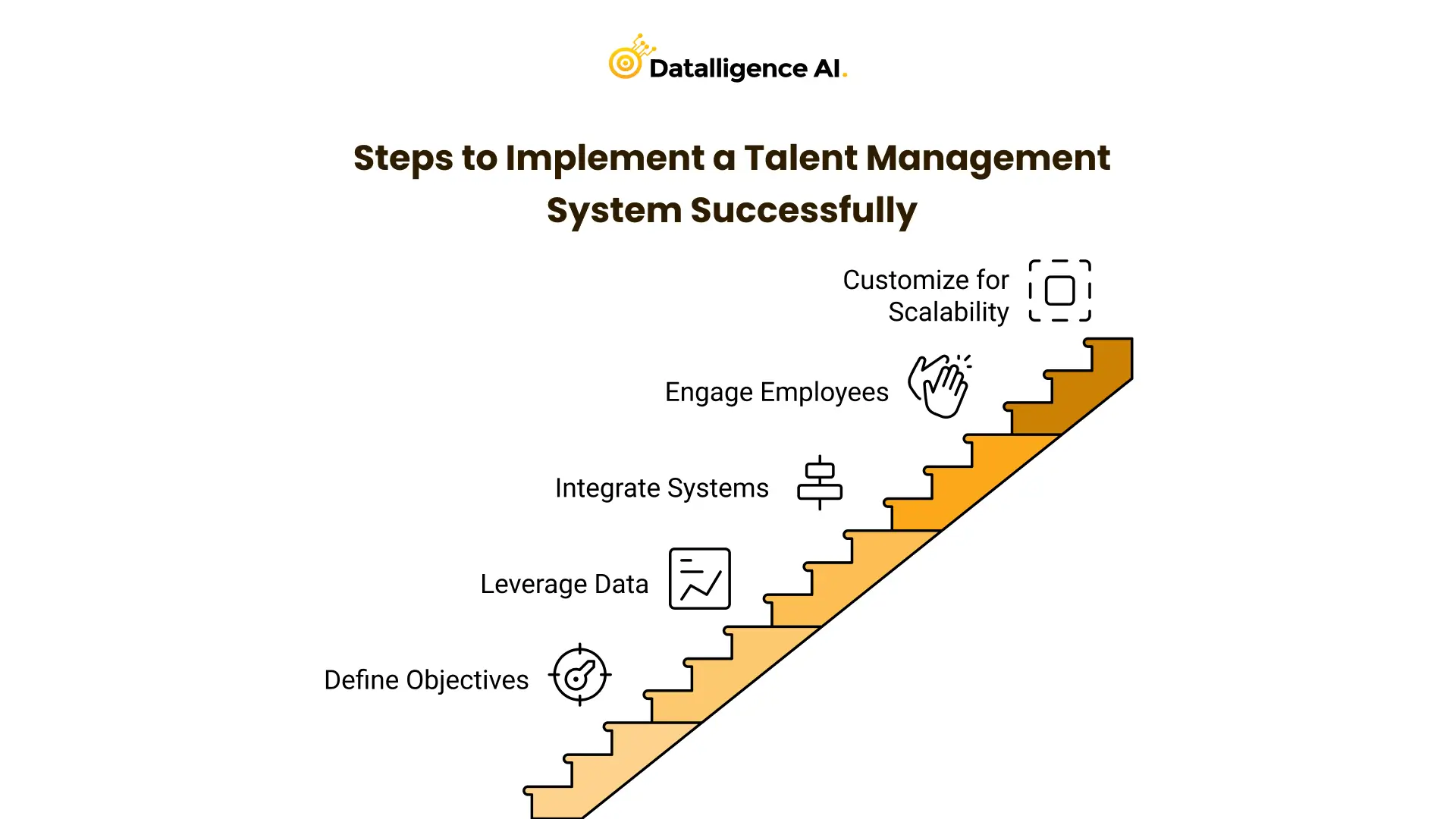
- Define Objectives Clearly
- Understand what your business aims to achieve with the Talent Management System, be it better engagement or performance tracking.
- Leverage Real-Time Data
- Use analytics to identify strengths, weaknesses, and areas for improvement in talent strategies.
- Integrate Seamlessly
- Align the Talent Management System with existing tools and workflows to ensure smooth transitions.
- Engage Employees in the Process
- Foster a culture of feedback by involving employees in goal-setting and performance discussions.
- Customize for Scalability
- Choose solutions like Datalligence that are designed to grow with your business.
How a Talent Management System Benefits Small Businesses
For small businesses, a Talent Management System offers a tailored approach to talent and performance management, making it easier to compete with larger organizations.
1. Boosts Productivity
Datalligence ensures employees remain aligned with organizational priorities, minimizing inefficiencies.
2. Reduces Turnover
Employees are more likely to stay in organizations that prioritize their growth and provide clear career paths.
3. Saves Costs
By automating HR processes and reducing administrative burdens, businesses can save time and resources.
4. Improves Compliance
Automated documentation ensures adherence to local labor laws and regulations.
5. Enhances Employee Morale
A transparent, feedback-rich environment fosters trust and motivation among employees.
Conclusion
The transition to a modern Talent Management System, like Datalligence, is a strategic step for businesses aiming to optimize their workforce management practices. By integrating agile methodologies, real-time analytics, and employee-centric design, a Talent Management System ensures organizations are prepared for the challenges of today and tomorrow.
For industries of any size with a focus on growth, investing in a solution like Datalligence brings the scalability, efficiency, and engagement tools needed to excel in a competitive market. It’s more than managing talent—it’s about empowering it. Let the Datalligence Talent Management System be your trusted partner in creating a future-ready workforce.

